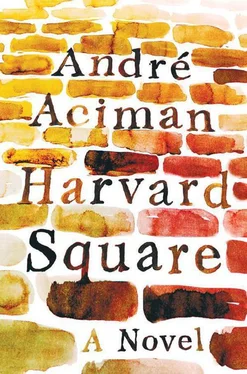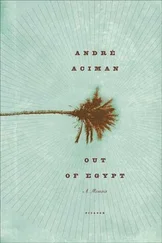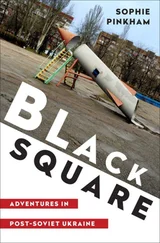And yet, no sooner had I felt this burst of shame than it was immediately relieved by an exhilarating sense of lightness I hadn’t felt since walking out on Niloufar that night — freedom, joy, space , as though an oppressive worry, which had been haunting and weighing and gnawing at me for months, had suddenly been lifted. I was soaring, as light as a kite racing through the clouds.
On impulse I wanted to seek him out and tell him about this strange, uplifting feeling — as though it were a startling revelation about a person we both knew, or a truth about human nature that I couldn’t wait to share, because he, of all people, understood all about these hidden mainsprings in the twisted gadgetry of the soul.
Yet now, I could head back to Harvard Square and not think twice about running into him. I could walk through Café Algiers and never worry he’d be there, go to Casablanca and no longer prepare to listen to yet another tirade, or expect to be unavoidably interrupted, or rehearse a new litany of excuses. Instead, I could sit at a table without talking to anyone, just as I’d done that Sunday in midsummer while reading Montaigne. Simply sit, mind my own business, be alone, and keep that door shut, which I’d accidentally flung open one hot Sunday when I’d walked up to a complete stranger and found someone who, but for incidentals, could have been me, but a me without hope, without recourse, without future.
I began to feel as certain countries do when their tyrant dies. At first there’s a hush in the city, and everyone mourns, partly out of disbelief, partly because life, trade, friendship, love, eating, drinking seem unthinkable without a tyrant to keep them in tow. Something in us always dies when the world as we’ve known it changes, and the sorrow is always genuine. But by the evening of a tyrant’s death, cars begin to honk, people suddenly shout hurrahs, and soon enough, the whole city, which only this morning was bathed in stupor and trembling, feels like a carnival town. Someone steps on top of a bus waving a forbidden pennant and everyone clamors back, dying to embrace him. The squares are filled with people. Everyone is partying.
I felt terrible for him, and I ached for him, thinking how he must have turned around at the airport and taken a last, long, languorous look at Boston, defeat and betrayal and the things he feared and hated most in life souring the ever-renewed sting of exile in his life. How many times must he have driven passengers to the airport and thought: One day, one day it will be me.
But I was forcing myself to feel sorry for him. I knew, as I prepared to head out to Café Algiers that night, already feeling something like a blithe sprint in my gait, that even as I might go searching for his shadow and pay homage to it the way people do penance at the shrine of a saint they may have helped to murder, I was also going to see whether I really missed him as much as I hoped I would. I knew the answer. But I wanted to make sure. Plus, I wanted to see with my own eyes that he had indeed left town and was never coming back. I wanted to preview life without Kalaj. Part of me wanted to celebrate but wasn’t going to until I was sure.
Just as I was growing to accept his departure, I caught myself thinking that he could easily be back, telling us it was all a mistake, that they’d taken him to the airport, but at the last minute, a reprieve had come down from the governor’s office. “I’m back, Kalaj is back,” he’d shout, big bear hugs to everyone in the coffeehouse.
I knew what I was doing. I’d allowed myself to fantasize his dreaded return not only to pay lip service to my nobler instincts, but also to relish the jolt of waking up from this short-lived fantasy to realize that no, he wasn’t coming back, that he was once and for all gone for good. Cambridge felt freer, quieter, and, on this late December evening, there was even a hint of something tolerably chilly that agreed with me. Yes, I felt free, the way the world must have felt infinitely freer when the last Titans were soundly beaten and sent packing.
When I arrived, his seat was indeed empty. None of the regulars who had known Kalaj wanted to sit there. It was their silent tribute. This is where the king sat, this is where he had said goodbye to everyone. “I’ve got a knot right here,” said Sabatini, pointing to his throat. Zeinab’s mascara had bled all over her eyes. “I am glad you came,” she said, as she hugged me in the kitchen where I’d gone to look for her. “You were the one he trusted.” I said nothing. “Unlike any of us, you were the one who never needed a thing from him.”
I didn’t know how to take this but decided to let it pass. I also knew that by not saying anything I was giving every indication of agreeing. On the wall she had Scotch-taped the sketch of his face done by the woman with bathroom problems. It still bore the marks from when he kept it folded in one of the many pockets of his camouflage jacket. Even the round coffee stain left by his damp saucer was still visible, bringing me back to that summer morning when he was filled with rage against a woman who had taken him in and been kind to him.
After Café Algiers, I went to Casablanca. Even the barman and some of the waiters knew he’d left. As did the barmen at the Harvest. I ordered a glass of wine and stood at the horseshoe bar of the Harvest, pretending I was waiting for him and that at any moment now he’d show up. But all I could remember was the evening when I’d watched him leave the bar area and then suddenly stop outside to light the cigarette he’d been rolling while talking to us. I’d watched him hesitate a while and finally walk into Casablanca’s back door, and through the back door presumably wander into the bar itself and then onto the back entrance of Café Algiers. I remember the elusive quiver of a waggish smile on his lips when he caught my silent signals and how our entire conversation was cut short with his habitually abrupt bonne soirée , which was always tinged with good fellowship, best wishes, and a flash of naughty sport. His fingerprints were all over Cambridge.
I ordered a second glass of wine before finishing the first. I wanted the barman to think I was lining them up; but I did it to nurse the illusion that Kalaj was drinking beside me. Perhaps I still wanted to see if I missed him. I ended up drinking four glasses of wine. Then I began to miss him in earnest, knowing all along, though, that it was probably the wine, not me.
When I was just about to leave the Harvest, I turned around and, for the sake of testing the words in my own mouth, or of hearing the effect they might have on me once I’d spoken them, I uttered Bonne soirée to the maître d’, who was French, and then, like Kalaj, abruptly walked out. I repeated the words up Brattle Street and into Berkeley Street, until I realized that what I was really doing was bidding farewell to Café Algiers, to all the people I’d befriended there, to Zeinab and Sabatini and the Algerian and Moroccan cabdrivers, to everyone I’d met because of him, to the Harvest and Casablanca and the Harvard Epworth Church on Sunday evenings, to our little lingo we’d improvised from the very start and to the fellowship that had blossomed because of it. Bonne soirée to so many new things he’d brought into my life, to our dinners with friends, to our dinners alone together, to happy hour, to the spirit of complicity that had been missing from my life and helped us find a common ground together during those hours when his worries over his green card and mine over my career cast a pall that nothing could dispel except the women who drifted into our lives and couldn’t make us happier than when we were talking about them after we’d been with them. Bonne soirée to our small oasis, to our imagined Mediterranean alcove, to our little corner of France immediately following last call, to the illusion of myself as a lone holdout stranded in a large, cold, solitary, darkling plain that had become my American home. I was one of them now, perhaps had always been, was always going to be but had never known it or was reluctant to own up to it until I’d met Kalaj and then lost Kalaj.
Читать дальше












